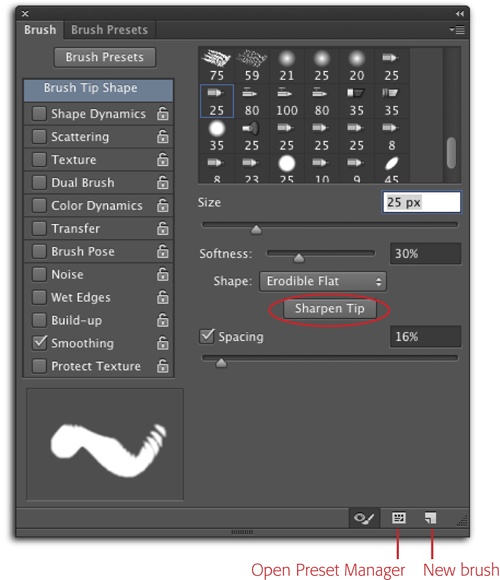Customizing Brushes
Once you get comfortable with the Brush tool, you can experiment with changing the way it behaves. For example, maybe you’d like to adjust the spacing between brush marks in a single stroke, or have the brush apply a texture. Happily, the Brush panel (Figure 12-22) gives you an amazing amount of control over brushes. To open it, click the Brush panel icon that you see in the Options bar whenever the Brush tool is active (it looks like a tiny panel), or choose Window →Brush.

Figure 12-22. The Brush panel gives you a gaggle of options for changing the way brushes behave. By mastering these controls, you can create some super-cool brushes that make your brushstrokes look realistic (not too perfect). Start by choosing one of the brush tips in the top-right part of the panel (the number beneath each tip represents its default size in pixels). If you don’t see any brush tips, click the Brush Tip Shape category on the panel’s left side. And if the panel’s settings are all dimmed, simply switch to a tool that uses a brush cursor, like the Brush tool (obviously) or the Eraser tool. Here, one of Photoshop’s Erodible brush tips is active. These tips wear down as you use ’em, just like real chalk or graphite (pencil lead), though you can use the Softness slider shown here to control how fast the tip melts away (a setting of 100 percent prevents it from wearing down at all). ...
Get Photoshop CC: The Missing Manual, 2nd Edition now with the O’Reilly learning platform.
O’Reilly members experience books, live events, courses curated by job role, and more from O’Reilly and nearly 200 top publishers.

